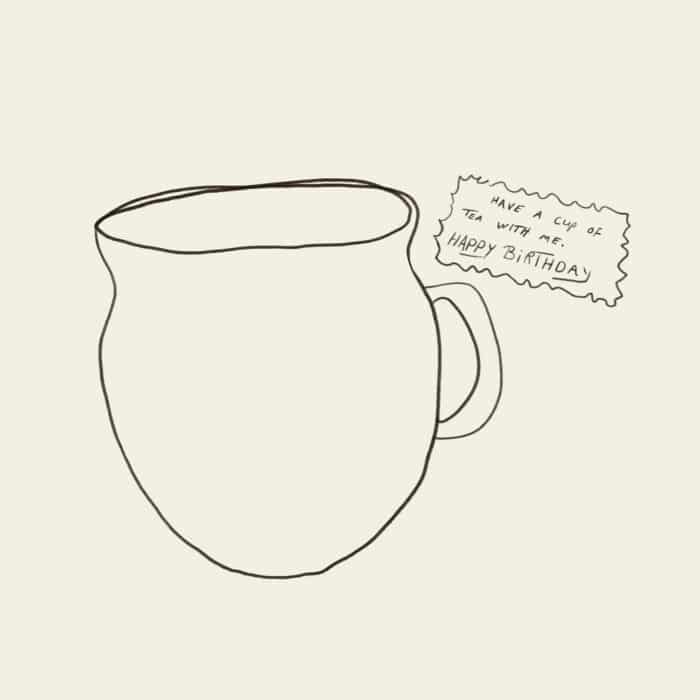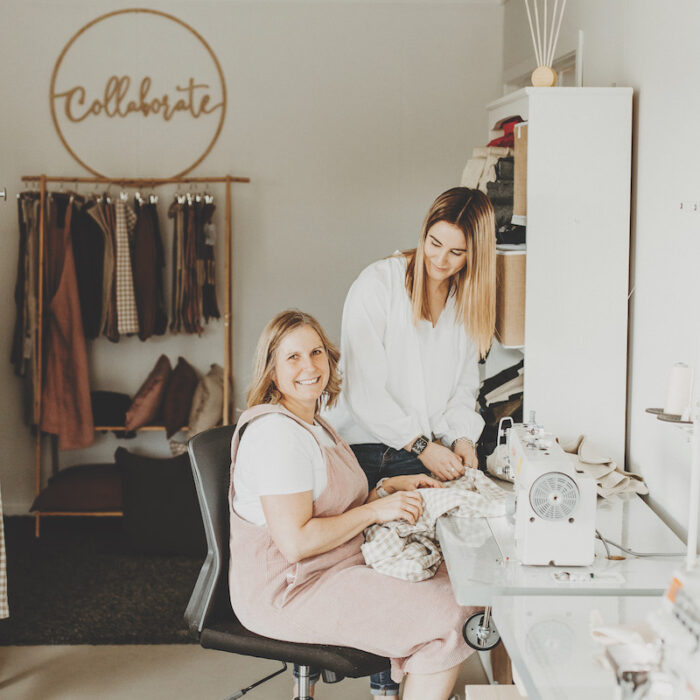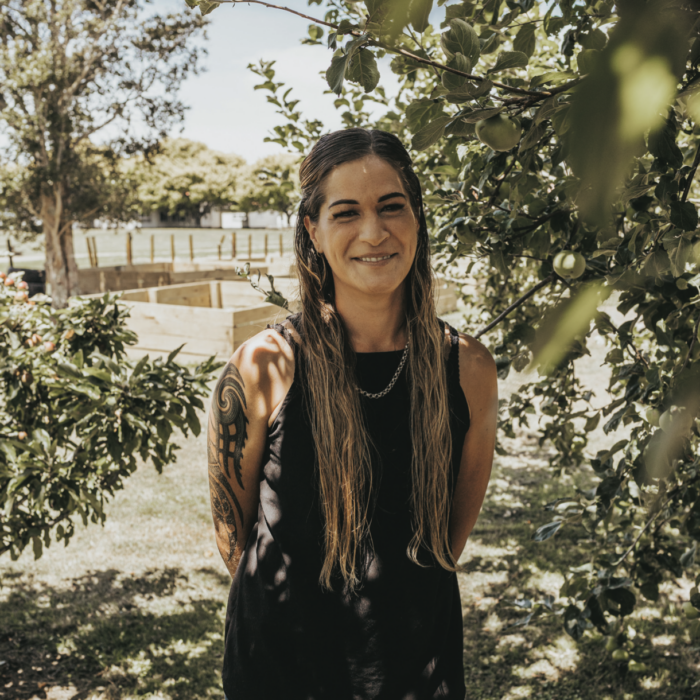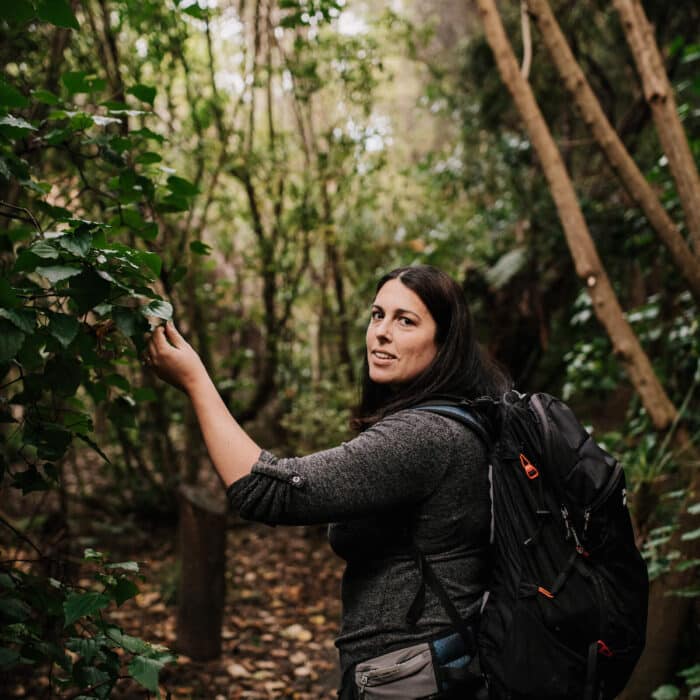
We farm sheep and beef in in the Kaitangiweka Valley, near Māpiu, in partnership with David’s dad. Our son, Trae, who just turned twenty-four, helps out a couple of days a week. He’ll eventually come into partnership with us, making him the fourth generation to farm here.
My husband’s grandfather settled here in 1947. Sadly, he died in 1955. His wife, Olive Joan Aitken, took over running the farm. She was one of the most resilient people I knew. She lived to be one hundred, and only left the farm when she was ninety-two. She had a huge vegetable garden and taught me how to do pickles and preserves. She also gave me the confidence to farm. She said, “Just get yourself a dog and go help in the yards. Don’t worry about what anyone else is thinking, because women can do it.”
When you drive through Māpiu, what you see from your car is old or empty buildings. The petrol station, takeaway and cafe closed many years ago. Our little school closed in 2019. You would think that it’s almost a ghost town, but it’s not. There’s a vibrant, connected community, alive and thriving in our homes and on our farms. It’s up the side roads and in the hills and valleys – you just can’t see us from the road. It’s like a little well-hidden secret. What brings us together is the family friendships that we’ve formed over the years. We’ll get together at the Māpiu Hall for all sorts of things – ANZAC Day, midwinter potluck dinners, fireworks, Christmas parties and weekly events like indoor bowls.
The school closing did impact us. It wasn’t just the school, but things like the weekly newsletter that you miss. But now the Māpiu Community Facebook page helps keep us connected.
The Māpiu-Mapara subcatchment group, under King Country River Care, is another way our community comes together. We’ve had workshops on water and soil care, either down at the Māpiu Hall or on different farms. We’ve been able to work together and nut things out between ourselves.
On our farm we’ve got a little native tree nursery. We both eco-source seed and gather seedlings from the ngahere blocks we’ve fenced off on the farm. I pot up the seedlings and after a couple of years plant them back, either in the ngahere blocks or in riparian zones. Kaitiakitanga means we are working within a management practice to nurture and care for the ngahere and its future, so what I take out, I put back – and then some!
During Covid I did an online raranga course. That got me thinking about the medicine that I knew was in flax. I found an online rongoā Māori course, and it opened a whole new world. I started looking into ways that rongoā could help me and my conditions – reactive arthritis and ankylosing spondylitis. I also got addicted to making soap! It opened up another line of using things from the land – koromiko, kawakawa, piripiri and kopakopa. Any money I make goes back into growing and planting the trees. It’s like a big cycle.
For us, springtime is the start of the farming year. The list of jobs goes sky high and it’s all go. The lambs arrive and it’s when we do most of our tree planting. We can also get some nasty storms in September; it’s like a false start. But when the kōwhai trees turn yellow, and the tūī and bellbirds are back, it’s springtime and it’s awesome. You just want to be out there in the sun.
The face of farming has changed. We’re not clearing the land any more; we’re almost going back the other way with replanting. I think we need to find that little bit of peace within ourselves and get out there into it, and realise what the world can do for us. It’s not all just work and hard slog; it’s appreciating and enjoying what you’ve got right on your doorstep. It’s breathing in the air, knowing who was here and what they’ve done, and that now it’s your turn. What can you do for the next generation? It gives you a real sense of belonging. The best thing about being here is that you are a living part of it.
Glossary. Kaitiakitanga, guardianship, stewardship. Kawakawa, pepper tree. Kopakopa, kidney fern. Koromiko, willow- leaf hebe. Kōwhai, small-leaved native tree common along riverbanks and forest margins. Ngahere, bush/forest. Piripiri, filmy fern. Raranga, weaving. Rongoā, medicine. Rongoā Māori, traditional Māori medicine.
This story appeared in our Kōanga Spring 2023 Edition.
Related Stories
A Treasured Family Memory
I grew up in St Leonards in Dunedin. We have a close-knit family, and all lived within the same block at the time.
Mandy & Shania
In Riversdale, mother-and-daughter team Mandy and Shania are combining their skills and setting the bar high with their beautiful, classic women’s clothing.
Melissa Reiri
This story is the eighth in a series where we share, in their own words, the stories of ten women who call Tararua home.
“Let’s put a boardroom table in the middle of the bush and clear the clutter of every day.”
Kylie loves to share the wonders of the Aotearoa bush through her two businesses, Nourish & Nosh Tours and The Bush Boardroom.
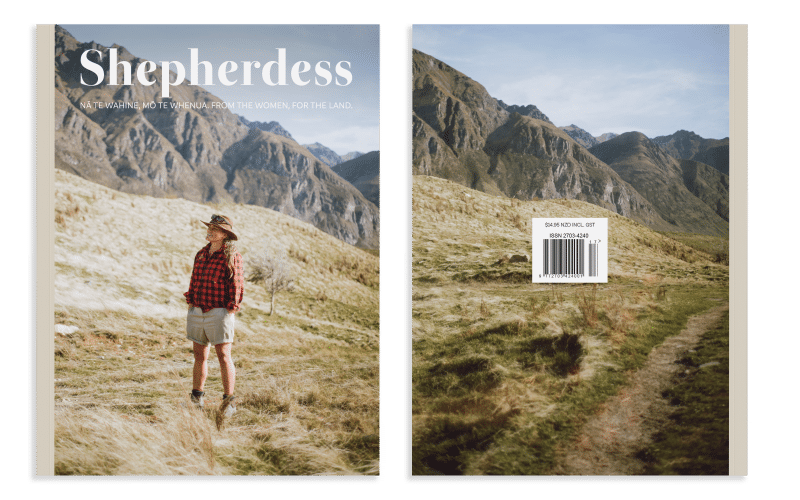
Out Now
Seventeenth Edition
Our beautiful Ngahuru Autumn 2024 Edition is out now!
